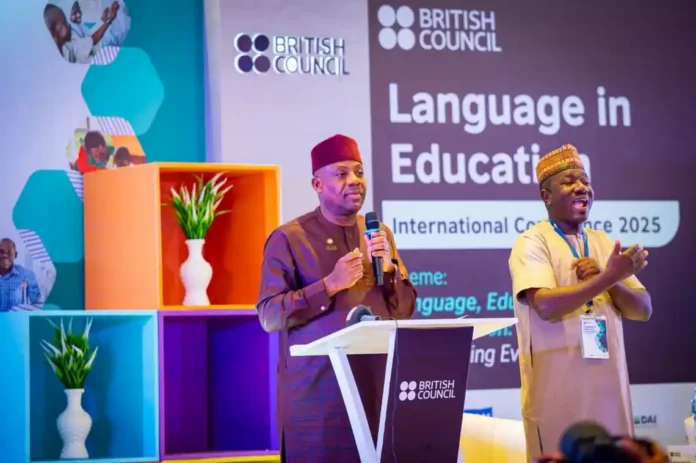Nigeria’s Minister of Education, Dr. Tunji Alausa, has explained why the Federal Government decided to suspend the Nigerian Educational Research and Development Council’s language policy and maintain English as the medium of instruction across all schools. Speaking at the Language in Education International Conference in Abuja, he said the decision was backed by fifteen years of empirical evidence showing that the mother-tongue-based model had not improved learning outcomes.
Dr. Alausa, who addressed the event alongside the Minister of State for Education, Professor Suwaiba Said, noted that the policy proved impractical in a country with more than five hundred indigenous languages. He stated that the lack of learning materials, inadequate teacher preparation, and weak transitions to English affected students’ performance nationwide. According to him, “In practice, it has proven impractical and inequitable in a country with over 500 indigenous languages,” stressing that the system created gaps that hindered learning quality.
He explained that keeping English as the primary instructional language would strengthen learning outcomes, ensure continuity across states, and align Nigeria’s education structure with global best practices. He added that the government’s new Inclusive Language Policy would still promote learning at least one Nigerian language to preserve cultural identity and support inclusion.
Donna McGowan, Country Director, Business and Trade Division, British Council United Kingdom, also underscored the importance of accessible language in education. She said, “Language should be a bridge to learning and not a barrier to our systems,” capturing the essence of the government’s reform direction.
Dr. Alausa stated that the focus is on building a stronger, fairer, and more inclusive education system. He emphasized that the reforms under President Bola Ahmed Tinubu’s Renewed Hope Agenda aim to deliver quality, inclusive, and globally competitive education. According to him, the priority is doing what is right for current learners and future generations by ensuring a clear and effective instructional framework for all Nigerian students.

